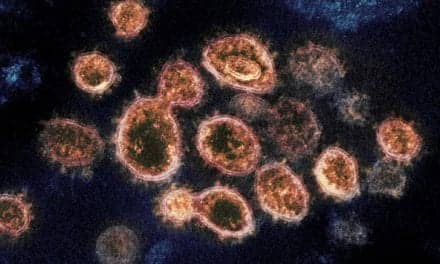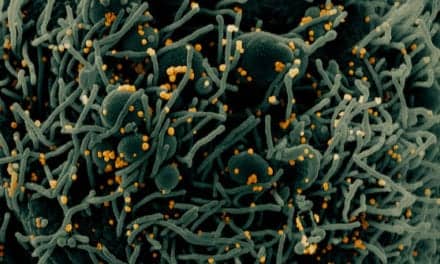SARS-CoV-2 reactive T cells may be sufficient to give protection from covid-19, and serology alone may underestimate those at lower risk of clinical SARS-CoV-2 infection, according to a prospective cohort study in keyworkers in the UK.1 The study was a collaboration between Oxford Immunotec Global, Oxford, UK, and Public Health England (PHE), and the data were generated as part of the EDSAB-HOME study, which investigated both antibody and T cell responses in a cohort of police, fire, and healthcare workers.
In the study, T cell tests were conducted at enrollment in almost 3,000 participants using the company’s standardized research use only T-Spot Discovery SARS-CoV-2 assay. These individuals were then followed up for subsequent development of symptomatic, PCR-confirmed SARS-CoV-2 infection. None of the participants with a high T cell response developed symptomatic SARS-CoV-2 infection in the follow-up period, whereas amongst those with low T cell responses there were 20 confirmed infections. Further follow-up is planned, allowing for updated analyses as case numbers rise, which may help yield additional insights into disease risk.
These, and additional results from the data, suggest that:
- Serology alone may underestimate the working age population at lower risk of clinical SARS-CoV-2 infection
- Individual level risk stratification may be possible using T cell assays
- Numbers of individuals with high levels of SARS-CoV-2 responsive T cells declines with increasing age, specifically in the absence of antibodies (serology), and this may explain higher illness incidence and severity in this group
- The T-Spot Discovery SARS-CoV-2 test detected PCR-confirmed SARS-CoV-2 infections that were not positive in antibody (serology) testing.
“We conducted a prospective cohort study in almost three thousand volunteers working in hospitals, and in the fire and police services in England,” says David Wyllie, PhD, consultant microbiologist at Public Health England and the lead author of the study. “Four months into the study, 20 participants with lower T cell responses had developed covid-19, compared with none among individuals with higher T cell responses. This suggests individuals with higher numbers of T-cells recognizing SARS-CoV-2 may have some level of protection from covid-19, although more research is required to confirm this.”
“Our T-Spot technology platform is the only globally regulated EliSpot platform currently available and we are pleased that we may be able to use it to support efforts to combat covid-19,” says Oxford Immunotec CEO Peter Wrighton-Smith, PhD. “Our collaboration with Public Health England is a great example of the public and private sector working together. The successful outcomes of this study would not have been possible without the specialist skills and resource available within Public Health England.”
T-Spot Discovery SARS-CoV-2 is for research use only, not for use in diagnostic procedures. Not all products are available in all regions.
For more information, visit Oxford Immunotec.
Reference
- Wyllie D, Mulchandani R, Jones HE, et al. SARS-CoV-2 responsive T cell numbers are associated with protection from COVID-19: A prospective cohort study in keyworkers. medRxiv. 2020.11.02.20222778; doi: 10.1101/2020.11.02.20222778.
Featured image: 3D illustration of T-cell or B-cell lymphocyte. Illustration © Katerynakon, courtesy Dreamstime (ID152049043).
I




